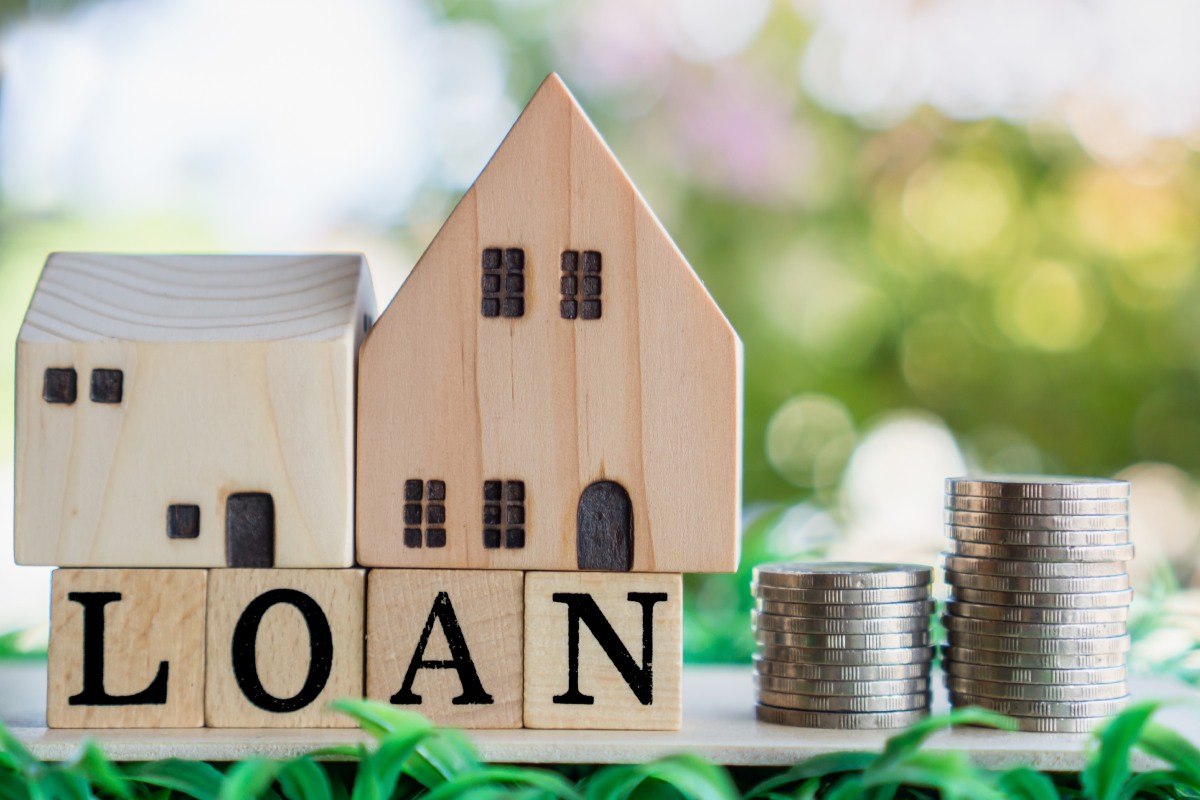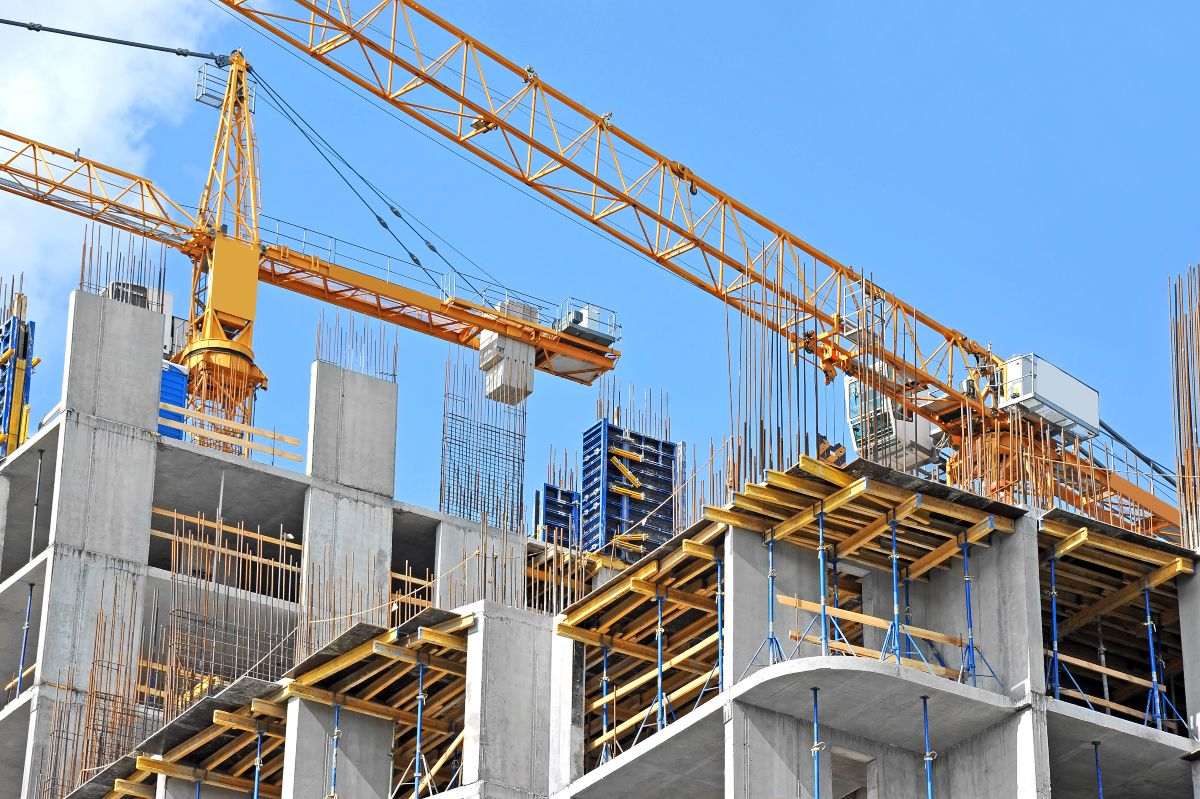
Are you ready to build your dream home project but need help to finance it? Knowing the current construction loan rates is essential for small-to-medium-sized business owners looking to begin construction.
With construction loans specifically created for funding the building or renovation of a property, understanding their rates can mean the difference between a successful project and financial strain.
Let’s dive into what you need to know about construction loans and how to secure the best rates.
What Is a Construction Loan?
A construction loan is an efficient financing option to fund new builds or major home renovations.
Unlike a traditional mortgage loan, which is used to purchase a finished property, a construction loan provides the necessary funds during the construction process. This type of loan covers the costs of labor, materials, permits, and other expenses associated with the project.
Construction loans have a set term, generally between six months to one year, and are intended to be paid off or converted into a permanent mortgage once the project is complete.
A key feature of a construction loan is the draw schedule. It outlines when funds will be disbursed to the borrower. This structure allows borrowers to pay interest only on the funds they have drawn, making it easier to manage monthly payments during the project.
Construction Loan Rates
Current construction loan rates can fluctuate based on market conditions, the borrower’s financial history, and the project specifics.
As of 2024, studies show that the average construction loan interest rate is between 9.75 and 11.5%. However, rates can vary depending on the lender, loan terms, and whether you’re securing short-term construction financing or a construction-to-permanent loan.
To secure the best construction loan, start by comparing rates across lenders. Rates can differ widely, so you want to evaluate multiple options to ensure that you are getting a competitive deal in order to match your project needs.
Many lenders offer flexible construction loan options, allowing borrowers to choose between fixed-rate or adjustable-rate loans, depending on their financial needs and preferences.
Plus, some lenders may offer jumbo loans for larger projects, which often come with competitive interest rates.
The loan-to-value (LTV) ratio is the jackpot in determining your loan rates. A strong understanding of LTV helps you anticipate the rates lenders may offer, impacting the overall cost of your construction loan.
Generally, lenders prefer a lower LTV ratio, which indicates less risk on their part. In competitive housing markets, it’s advisable to secure pre-approval to enhance your credibility when negotiating loan terms.
Origination Fee
When applying for a construction loan, you might come across an origination fee. This is a charge from the lender for processing your loan application, typically ranging from 0.5% to 1% of the total loan amount.
It’s a good idea to factor this fee into your overall project costs, as it adds to your closing costs.
The origination fee is just one part of the picture. Lenders may also charge other fees, like application fees or costs related to underwriting and processing your loan.
Being aware of these fees can help you plan your budget more accurately. Not to mention, it can also help avoid any surprises as your construction project progresses.
Extra Closing Costs
Closing costs for a construction loan are fees required to complete the loan process. These costs can include appraisal fees, title insurance, and inspection fees — all of which can add up quickly. Asking for a breakdown of the estimated final closing costs from your lender will ensure no surprises arise.
Closing costs can total 2-5% of the loan amount and an origination fee, often around 1% of the loan. Closing costs, which are fees paid when finalizing a mortgage, typically amount to 2-5% of the total loan. Among these costs is the origination fee, usually around 1% of the loan amount. It compensates the lender for processing the loan application.
By knowing these costs in advance, you can plan your budget more effectively and have a clearer idea of what your monthly payments will be. Be sure to account for any taxes and insurance that may also factor into your overall financial commitment during the construction period.
Realtor Fee
If you’re working with a real estate agent to find the perfect property for your construction project, be aware of the realtor fees. These fees are generally around 5% to 6% of the property’s purchase price. Typically, the seller pays this fee. However, it can also be negotiated between the buyer and the seller’s agent.
The realtor fee is another key factor in your overall budgeting for the project. By including this fee in your financial calculations, you can ensure that you’re prepared for all aspects of the construction process, from breaking ground to the final inspection.
How to Apply for a Construction Loan
Applying for a construction loan requires careful planning. Here’s a step-by-step guide to navigating the financing process effectively:
1. Plan the Project
Before applying for a construction loan, outline your project in detail. Determine the scope of work, estimated construction costs, and a timeline for completion.
Having a clear project plan will help lenders assess the viability of your loan application. You’ll want to consider potential cost overruns and how to manage them to avoid delays. It’s also helpful to have a contingency plan for any unexpected changes
2. Select a Lender
The building process is expensive, and each dollar that you spend will influence how well your project turns out. Comparing construction loan lenders should begin with the lenders themselves and their terms.
Construction loans are available through a variety of lenders, who assess risk and set interest rates differently.
Go for lenders that have experience in construction financing as they are more likely to offer tailored loan options for a custom home or a significant refurbishment. Also, take note of the charges for origination, closing, and inspections for those costs can add up rapidly.
See customer reviews on sites like the Better Business Bureau (BBB) or other reputable financial sites such as NerdWallet to find out whether or not the lender is reliable, trustworthy, and provides good quality service.
3. Gather Required Documentation
Lenders will require various documents to process your loan application. Be prepared to provide financial statements, tax returns, a detailed project plan, and any necessary permits.
Having these documents ready can expedite the approval process and improve your chances of securing favorable loan terms.
4. Confirm Loan Terms
Before finalizing your construction loan, carefully review the terms and conditions. Ensure you understand the interest rate, repayment schedule, and any additional fees.
It’s crucial to confirm how your monthly payments will be structured during the construction phase and what your actual payment obligation will be once the construction is complete. Don’t hesitate to ask your lender for clarification on anything you find confusing.
Conclusion
Understanding current construction loan rates is a necessity for business owners beginning a construction project. Knowing the loan process, associated fees, and strategies for securing favorable rates will help you budget effectively and manage costs.
Know everything you can in advance: research, collect the necessary documents, and try to estimate your timeline. When you have a well-defined plan and the financial institution that will help you implement it, nothing can stop you in turning your construction project into reality.
For expert guidance and flexible financing options, reach out to E-Boost Partners today. Our team will help you navigate the construction loan process and secure the best terms to bring your vision to life.
FAQs
Interest-only payments allow borrowers to pay only the interest on their loan for a set period, typically during the construction phase. This can lower your monthly payments initially, but keep in mind that you will still owe the principal balance at the end of the interest-only period.
Yes, first-time home buyers can qualify for construction loans, but they need to meet certain criteria. Lenders usually look for a good credit history, stable income, and a low debt-to-income ratio, along with a down payment of around 20%. Talking with multiple lenders helps you explore the best terms.
Construction loan rates can be higher than traditional mortgage rates due to the increased risk associated with financing a project that has not yet been built.
Construction loans are typically short-term loans, ranging from six months to one year. Once the construction is complete, borrowers usually refinance into a permanent mortgage.




